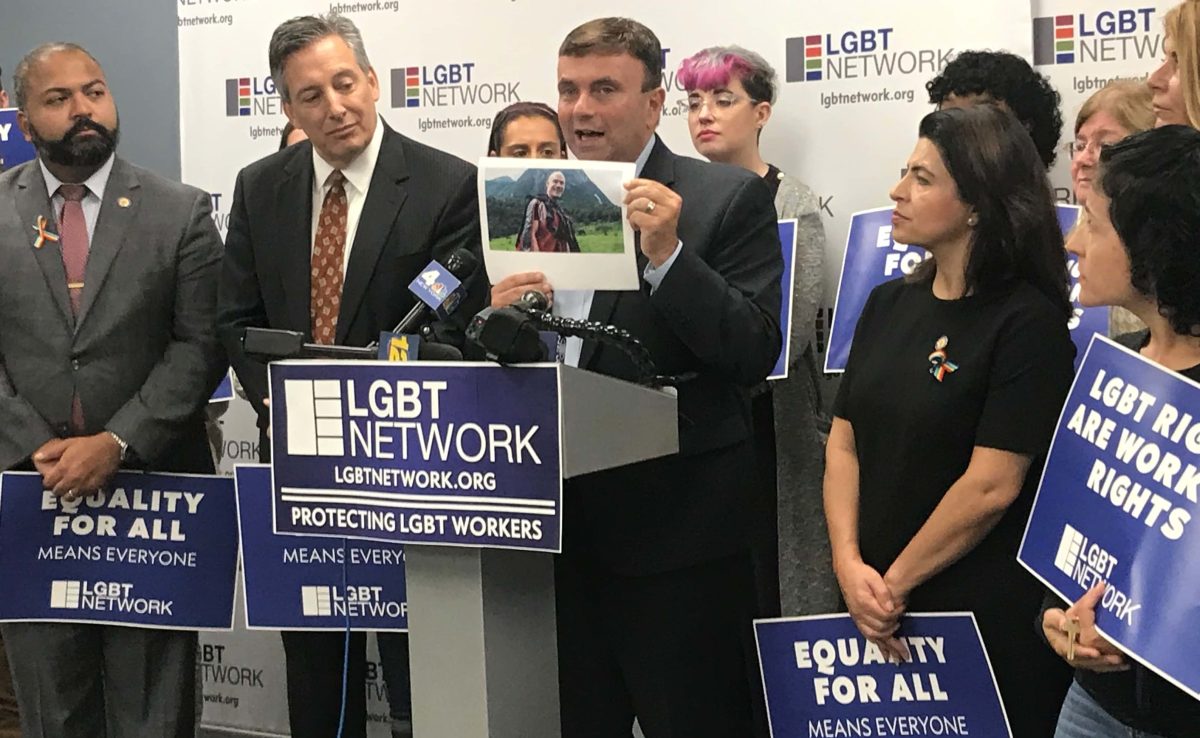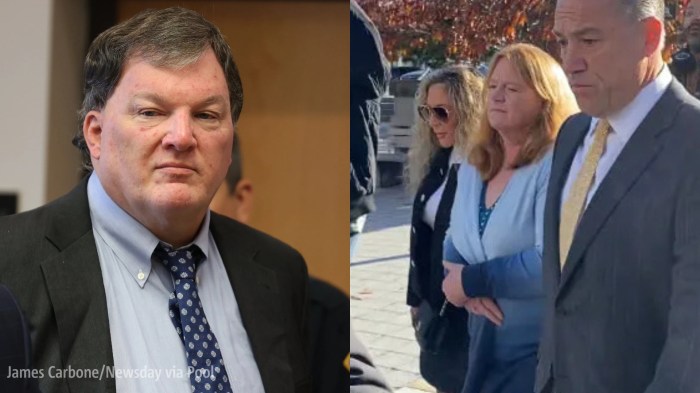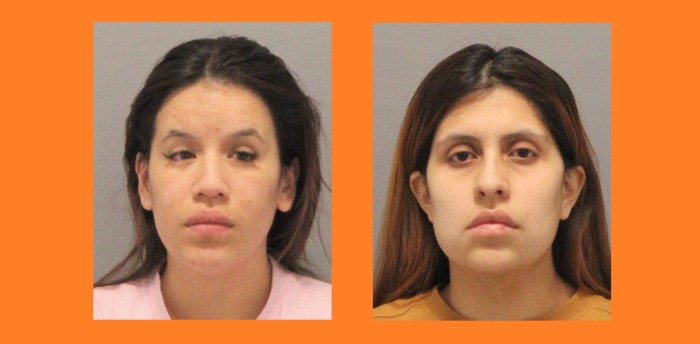The case of a man who claimed Long Island Skydive fired him for being gay has been appealed to the U.S. Supreme Court, which heard arguments Tuesday on the accusations.
The U.S. Court of Appeals for the Second Circuit in Manhattan had overturned a lower court’s ruling against Donald Zarda, who sued the former owners of the Calverton-based skydiving company arguing that his firing violated discrimination laws. The company’s former owners, who counter that Zarda was fired for making a customer feel uncomfortable, appealed to the highest court in the land, which agreed to hear the case that is expected to result in a landmark ruling.
“There’s a lot at stake,” David Kilmnick, president and CEO of the Long Island LGBT Network, told reporters during a news conference Tuesday at his Hauppauge office.
The Zarda case is one of three LGBT discrimination cases that the Supreme Court heard Tuesday and its first on the issue since conservative-leaning Justice Brett Kavanaugh replaced retired swing vote Justice Anthony Kennedy, bringing the court to the right. The ruling may decide federal anti-discrimination protections on the basis of sexual orientation and gender identity — protections that some argue should be passed by Congress instead of decided by the courts. New York State has laws barring such discrimination, but more than half the other states in the nation do not.
The Supreme Court is also hearing the case of a transgender woman who claims that she was fired from her job at a Michigan funeral home after telling her boss that she was transitioning — a case that she won and a Cincinnati federal appeals court affirmed. The third case involves a Georgia man who argues that he was fired from his Clayton County job for being gay, although in his case, he lost his lawsuit and a federal appeals court in Atlanta also ruled against him.
Zarda died in a skydiving accident five years ago, but his sister and former partner are continuing the case on behalf of his estate. Kilmnick was flanked by local lawmakers rallying in support of Zarda’s case. Among them was New York State Sen. Kevin Thomas (D-Levittown).
“This is an absolute travesty that such a case has to come before the Supreme Court,” Thomas said. “They’s not looking for any special rights. They’re looking for the same rights that everyone else has in this country.”
Em Moratti, a Long Island woman who said she lost her first teaching internship after parents objected to LGBT-related internet posts of hers that they found, said the ruling in the three cases will affect the lives of those in the community.
“Regardless of which direction, this will have an incredible impact on LGBT people,” she said.

























